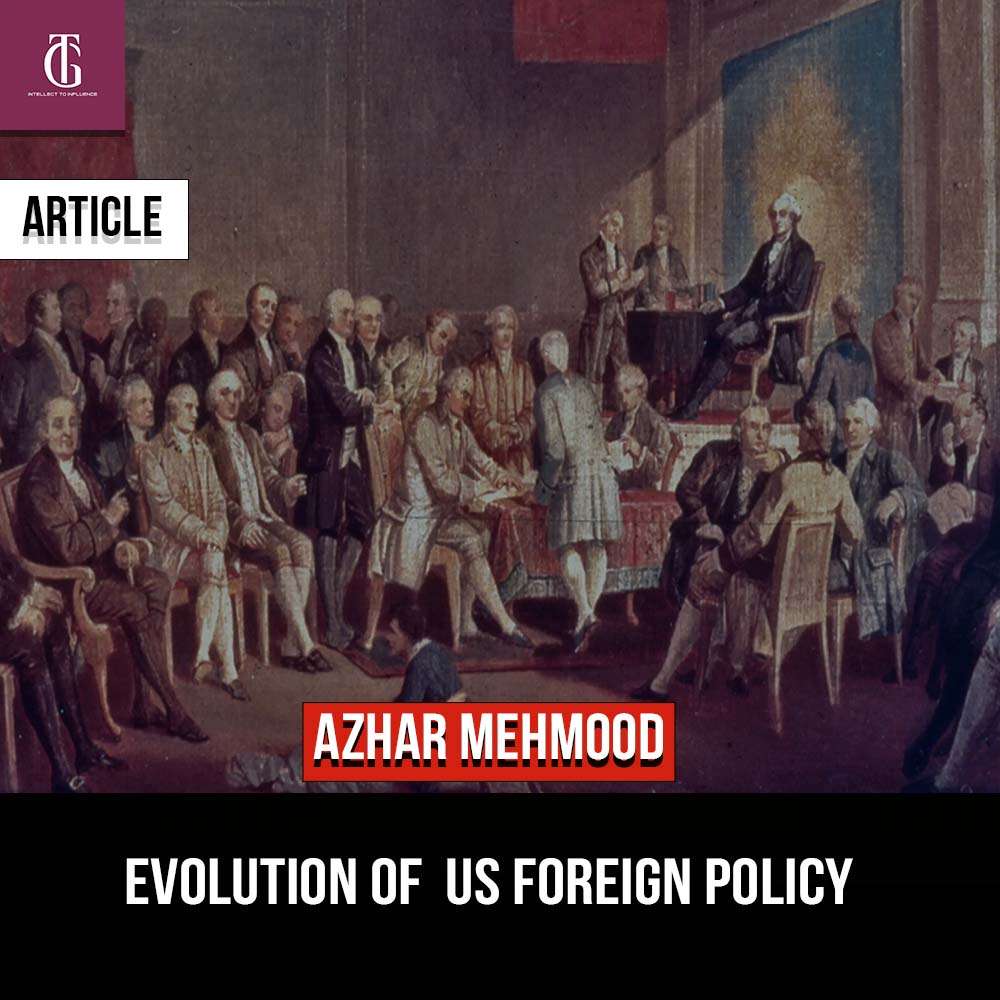
The foreign policy of the United States has evolved through distinct phases over the course of its history, reflecting changing global contexts, domestic priorities, and ideological paradigms. From its early years as a fledgling republic to its emergence as a global superpower, the United States has navigated a complex and dynamic international landscape, shaping and reshaping its foreign policy objectives and strategies. This essay explores the key phases of US foreign policy, examining their defining characteristics, underlying principles, and lasting legacies
Firstly, in its formative years, the United States pursued a foreign policy characterized by principles of isolationism and non-interventionism. Rooted in the notion of avoiding entanglements in European power politics and prioritizing domestic development, this approach guided US foreign policy during the nation’s early years. The Monroe Doctrine, articulated in 1823, asserted American hegemony in the Western Hemisphere while signaling a reluctance to become involved in European conflicts. Isolationism remained a dominant theme in US foreign policy well into the 20th century, exemplified by the nation’s initial reluctance to engage in World War I and its subsequent retreat into isolationism during the interwar period.
Secondly, throughout the 19th century, US foreign policy was shaped by the twin imperatives of territorial expansion and the doctrine of Manifest Destiny. Fueled by notions of American exceptionalism and the belief in the nation’s destiny to expand across the North American continent, the United States embarked on a campaign of westward expansion, acquiring vast territories through diplomacy, annexation, and military conquest. The Louisiana Purchase, the annexation of Texas, and the acquisition of territories such as California and Oregon exemplified this expansionist phase of US foreign policy, which sought to consolidate American territory and assert its influence in the Western Hemisphere.
Thirdly, the late 19th and early 20th centuries witnessed the emergence of the United States as a global power, accompanied by a shift towards imperialist ambitions and interventionist policies. The Spanish-American War of 1898 marked a turning point in US foreign policy, as the nation sought to assert its influence beyond its continental borders. The acquisition of territories such as Puerto Rico, Guam, and the Philippines reflected America’s growing aspirations for global dominance and its willingness to engage in overseas imperialism. The Roosevelt Corollary to the Monroe Doctrine further cemented America’s interventionist posture in Latin America, justifying military interventions and interventions in the affairs of sovereign nations under the guise of protecting hemispheric stability.
Fourthly, the onset of the Cold War in the aftermath of World War II ushered in a new phase of US foreign policy characterized by containment and the struggle against Soviet expansionism. Formulated by diplomat George F. Kennan and articulated by President Harry Truman, the policy of containment sought to prevent the spread of communism and Soviet influence through a combination of military deterrence, economic aid, and ideological competition. This era witnessed US involvement in conflicts such as the Korean War and the Vietnam War, as well as the establishment of military alliances such as NATO and SEATO to counter Soviet aggression. The doctrine of containment shaped US foreign policy throughout the Cold War era, influencing American interventions in regions as diverse as Latin America, the Middle East, and Southeast Asia.
Fifthly, the collapse of the Soviet Union and the end of the Cold War heralded a new phase of US foreign policy characterized by unipolarity and interventionism. With the United States emerging as the sole superpower, the 1990s witnessed a period of unparalleled American influence and activism on the world stage. President Bill Clinton’s administration pursued a policy of liberal interventionism, advocating for democracy promotion, humanitarian intervention, and economic globalization. US military interventions in the Balkans, Somalia, and Haiti exemplified this interventionist phase of US foreign policy, which sought to advance American values and interests through assertive diplomacy and military force.
Sixthly, the terrorist attacks of September 11, 2001, marked a pivotal moment in US foreign policy, leading to a renewed focus on counterterrorism and the global war on terror. The Bush administration’s response to the attacks, including the invasion of Afghanistan and Iraq, underscored America’s commitment to combating terrorism and spreading democracy in the Middle East. The Global War on Terror, characterized by military interventions, drone strikes, and intelligence operations, reshaped US foreign policy priorities and strategies in the 21st century, influencing American engagement in regions such as the Middle East, South Asia, and Africa.
Lastly, the contemporary era is witnessing the emergence of a new strategic competition between the United States and China, often referred to as “Cold War 2.0,” particularly in the Asia-Pacific region. The US Indo-Pacific strategy has become a focal point in this competition, aimed at countering China’s growing influence and assertiveness in the region. The United States seeks to bolster alliances and partnerships, enhance military presence, and promote a rules-based order that safeguards freedom of navigation and territorial integrity. Meanwhile, China’s ambitious Belt and Road Initiative, military modernization efforts, and assertive behavior in the South China Sea pose significant challenges to US interests and regional stability.
In a nutshell, the above mentioned phases of US foreign policy reflect the nation’s evolving role in the world and its responses to shifting global dynamics and domestic imperatives. From isolationism to expansionism, containment to interventionism, these phases have shaped America’s engagement with the international community and its pursuit of national interests and ideals.
The author is a student of Politics and International Relations at QAU, Islamabad.





